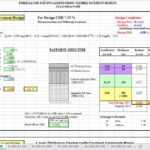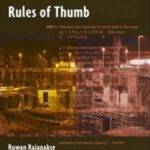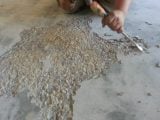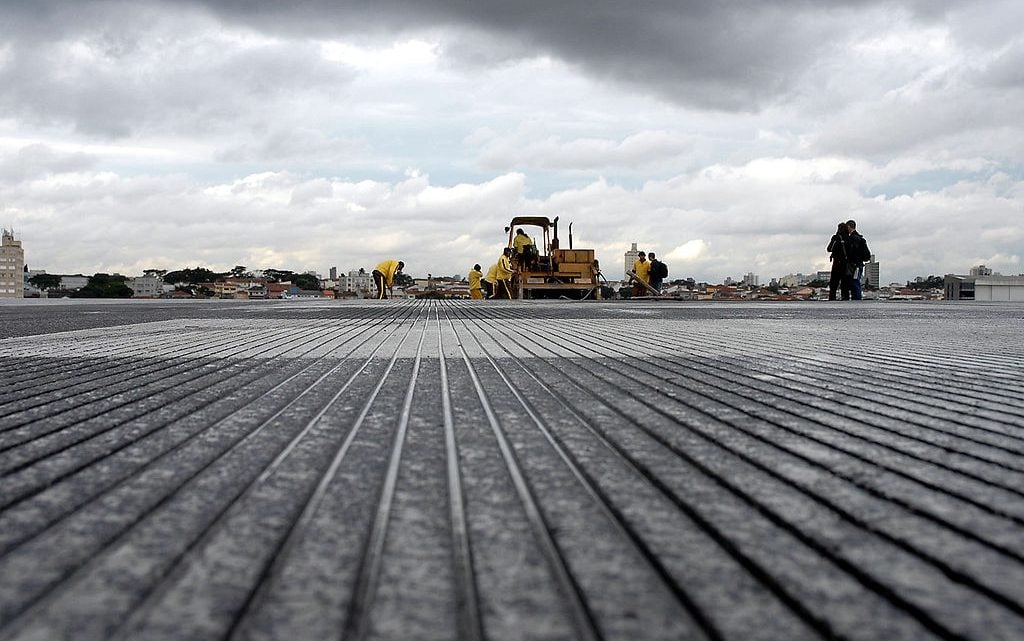
What type of pavement is used for airports runway?
28 January 2019What type of pavement is used for airports runway?
The materials used for airports is generally the same as what is used for roadways, however, the depths, or thicknesses are different, and the tolerances are much tighter at an airport. The material for runways usually needs to meet a much tighter spec.
A typical section for an airport can use asphalt or concrete. Below is a generic look at the structural section for either asphalt or concrete from an FAA Advisory Circular on Aiport Pavement Design and Evaluation.
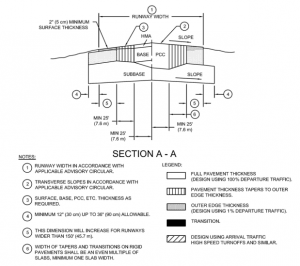
You will notice that the materials in the middle are thicker and then taper to thinner. This is because the loads on the runway are primarily from the 2 landing wheels, which will be in the middle of the runway. The effective tire width is pictured below.
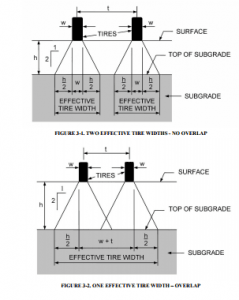
The surface must be smooth and well bonded, and resistant to the shear stresses of the airplane wheel loads. The non-skid surface must not cause undue wear on the airplane tires . The surface must be free of loose particles that could damage the airplane or people. In order to meet this requirement, there must be good control of the mix. This usually requires a central mixing plant be used for the hot mix asphalt.
The base course is integral to flexible pavement design such as asphalt. The loading in flexible pavements transfers downward and outward. For this reason, the base, subbase, if used, and subgrade contribute to the strength of the pavement section. For concrete pavement, the concrete provides the strength to the structural section.
The base course must be of sufficient quality that it won’t fail, or allow failure in the subgrade. It must be able to withstand the forces from the airplane wheel loading without consolidating which would cause the surface course to deform. The base course uses very select material with very hard and durable aggregate. The requirements for the base course are very strict.



